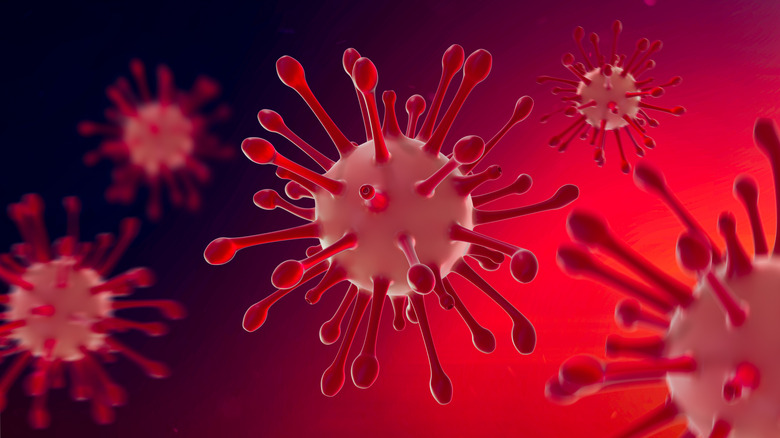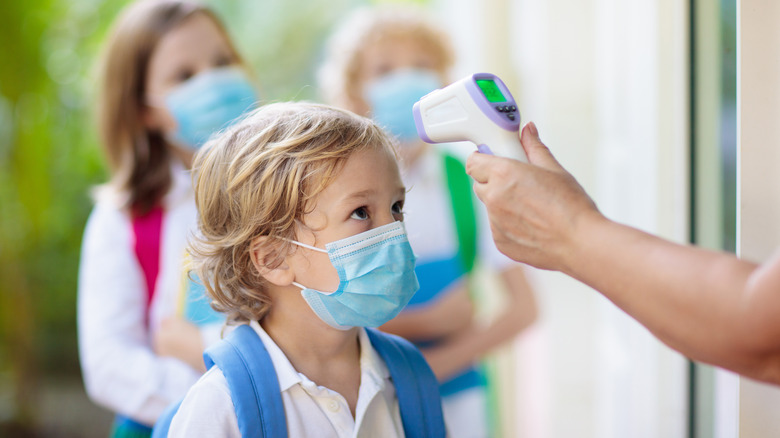Research Finds Incubation Periods May Be Getting Much Shorter As COVID Evolves
It's common knowledge that viruses hijack our cells. They reproduce and replicate, infecting more and more cells. The time during which a virus reproduces inside a person before causing symptoms is called the incubation period. When this incubation period is long, it makes it extremely hard to stop the spread of a virus, since many people may spread it before realizing they are sick (per Bloomberg). Enter COVID-19.
At the beginning of the COVID-19 pandemic, the incubation period was much longer than that of other respiratory viral infections such as influenza and rhinovirus, according to Bloomberg. On the bright side, as COVID-19 has evolved and more variants arrived, new research suggests the incubation period has shortened significantly (via U.S. News & World Report). This 2022 study was published in JAMA Network Open.
What the researchers in China found was as the strains mutated from the Alpha variant to the Omicron variant, COVID-19 incubation periods gradually decreased. "In this study, the shortest mean incubation reported was 1.8 days and the longest incubation was 18.87 days," notes study author Min Liu (via U.S. News & World Report). The findings were based on the data of 142 different studies involving a total of 8,112 patients.
Each of these papers examined was dated between December 1, 2019 and February 10, 2022. Researchers focused on the incubation periods, noting that symptoms of the Alpha variant on average took 5 days to appear.
What about other variants?
The Beta variant was associated with a reduction in the incubation period. On average, the gap between exposure and onset of COVID-19 symptoms shortened to 4.5 days, the 2022 study reported.
When the Delta variant emerged, the number dropped even more. This time the incubation period fell to 4.41 days, even though the Delta variant was highly contagious and labeled as a "variant of concern" by the Centers for Disease Control and Prevention.
The Omicron variant came to light in late 2021, with symptoms appearing within an average of 3.42 days. "The findings of this study suggest that SARS-CoV-2 has evolved and mutated continuously throughout the Covid-19 pandemic, producing variants with different enhanced transmission and virulence," says Wannian Liang, one of the study authors, and colleagues (via Bloomberg).
This shortening of the incubation time is good news. "At present, some countries around the world require close contacts to be isolated for 14 days," said Liu and colleagues (via U.S. News & World Reports). However, since the average incubation period has shortened, Liu and colleagues suggest that the isolation of close contacts in these countries can be altered to lower the strain on healthcare systems.
Keep in mind that COVID-19 guidelines are continuously changing, so it's important to stay up to date with vaccines. If you're traveling, double-check the local COVID-19 policies and quarantine periods.


